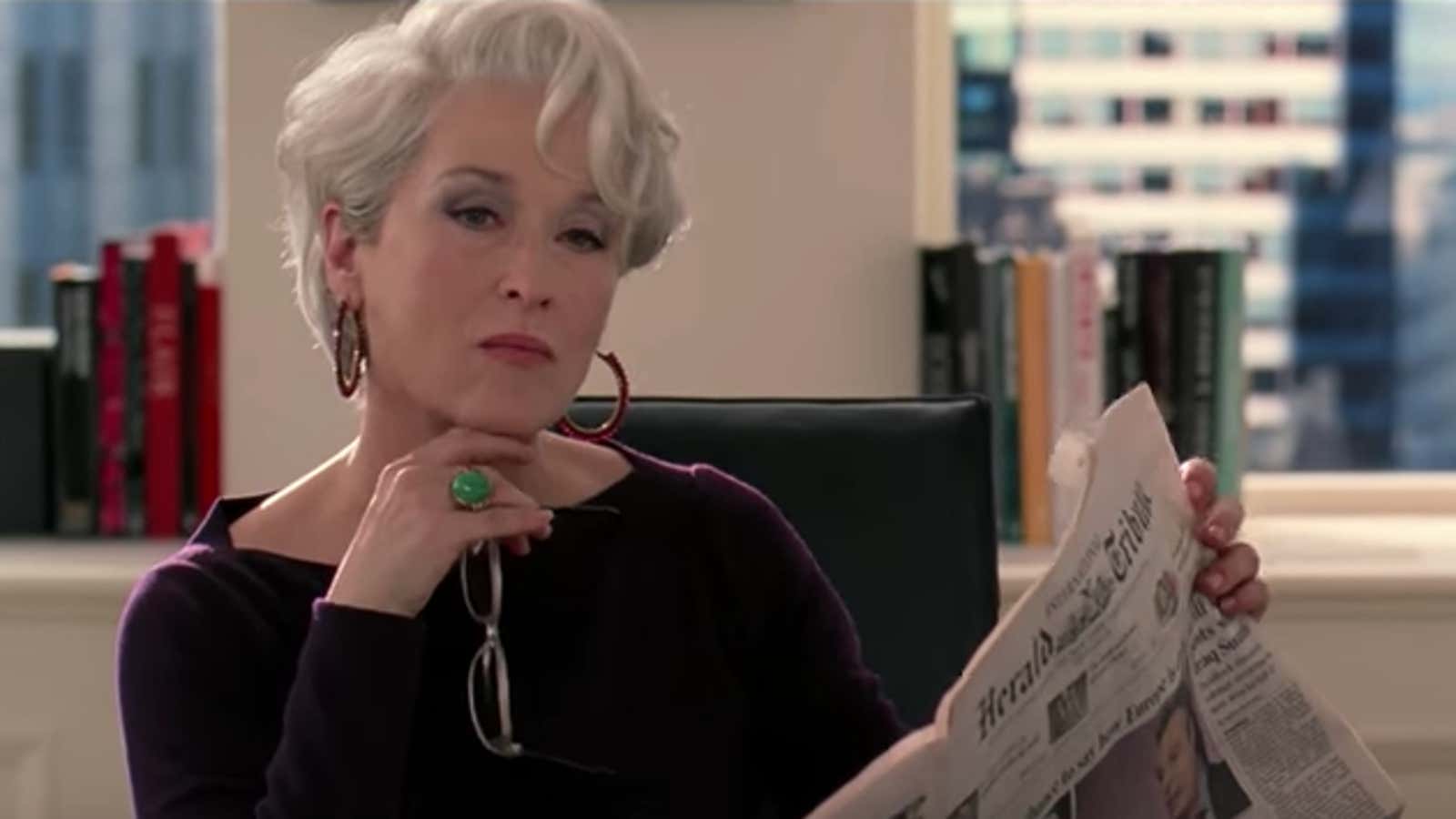People have high expectations for Meryl Streep’s appearance in the next season of Big Little Lies. My personal hope? That her character will wear glasses—because, on screen and in real life, Streep wields glasses like a stylish weapon.
In Streep’s hands, glasses aren’t just a prop. They’re a tool through which she can alternatively signal displeasure, curiosity, embarrassment, unease, and intrigue. They’re a powerful extension of character. Body language experts and image coaches have expressed how much glasses can be seen as “extension of personality”—and Streep uses this magnificently in her character work. Perhaps my favorite thing about Streep’s use of glasses is that it provides such a striking contrast to the old movie trope in which a woman’s true beauty and power is only revealed when she takes off her glasses. Streep shows us that you can be beautiful wearing glasses, not to mention powerful, intelligent, and strong too.
To appreciate the true scope of Streep’s stunning achievements with spectacles, it’s helpful to review a few of her classic moves:
The whipping-off-the-glasses move
In one swift movement, she sends a message: “I’m here, and yes, you should be scared of me” — Devil Wears Prada
The peering-over-glasses move
A gesture that emphasizes the warning that follows: “That wasn’t a question.” — Devil Wears Prada
The hiding-behind-glasses move
A pair of oversized dark sunglasses offers the perfect metaphor for the way her character, an irascible matriarch, buries her love for her family — August Osage County
The fiddling-with-glasses move
As Washington Post publisher Katherine Graham, Streep uses glasses to channel her frustration, anxiety, and irritation at feeling voiceless in a male-dominated publishing world. — The Post
The my-glasses-are-me move
As Aunt Josephine, Streep wears her eccentricity on her nose. — A Series of Unfortunate Events
Streep’s use of glasses can, at times, be controversial. For one critic, the costume worn by Streep’s character in Doubt turned her into an “overplaying maniac” who “glowers from behind her austere little spectacles like Sunbonnet Sue on a PMS tirade.” (Streep was nominated for an Oscar for her role.)
Longtime costume designer Karyn Wagner, who has worked on movies like The Green Mile and The Notebook, says Streep is well-known in the film industry for being very specific about her character’s costumes and glasses. “That’s the thing she most connects to when she’s prepping for her character,” Wagner says. “I think she is particularly gifted because that is something she focuses on.”
Wagner says that glasses can be particularly fundamental to an actor because “it frames their eyes and it helps them frame the character.” They can help an actor establish a “covenant with the audience,” where the sense of the character is conveyed in non-verbal ways. “You’ll never find a biker in tasseled loafers, you’ll never find a banker in a paisley patchwork waistcoat … A guy who wears aviators is a certain kind of person and a person who wears horn-rims or John Lennon [style] glasses is a different type of character. You have to help the audience understand who the character is by picking the right thing,” Wagner says. “[Streep] has obviously thought a lot that covenant with the audience.”
Streep has also used glasses to dramatic effect in real life. Eyewear blogs and fashion sites rejoice in her bold, fun, playful eyewear choices. “Even as the actor with the most Academy Award nominations, Streep has managed to elude one (admittedly sillier if not less important) recognition,” writes W Magazine. “Her knack for picking out eye-catching eyewear.”
Streep’s eyewear flair may rank fairly low on her list of accomplishments, but it does point to a broader sea change in the ways glasses are perceived. Thanks to the geek-chic trend and characters played to by Zoeey Deschanel in New Girl, Mindy Kaling in The Mindy Project, and Tina Fey in 30 Rock, glasses have become an increasingly fashionable accessory. More actresses are even embracing wearing them on the red carpet.
That makes a big difference to people like me. I started wearing glasses when I was nine years old. At the time, the gift of sight was a barely acceptable trade-off for the teasing that followed. My classmates said I was a “four-eyes,” a “nerd,” and a “bookworm” (not entirely untrue, but at nine, that stings). Today, I mostly wear contacts. But the example set by Streep has helped me to see glasses not as a sign of weakness, but as a signifier of intelligence and strength. I can nerd out to that.
